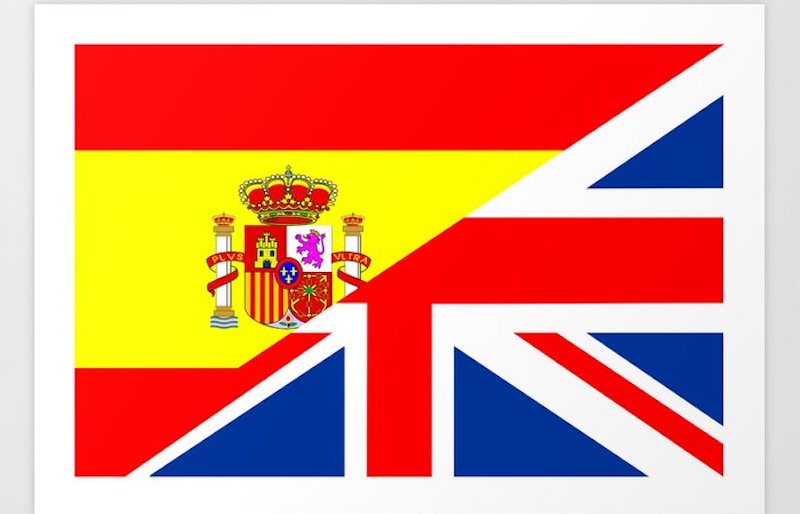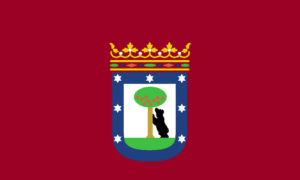On 1 January 2021, the UK finally departed the European Union. And so as the dust finally begins to settle on what seemed like a lifetime of
negotiations, disagreements and recriminations following the 2016 Brexit vote, we are taking a quick look at what it means for those of us who still yearn to have visas in Spain and move to sunnier climes. Lots has changed, the United Kingdom is now a third country following the same third-country rules as almost every other country outside of the European Union.
Which means in terms of residency you can no longer arrive in Spain unannounced. That’s if you plan to stay and become a resident. Instead, you will need to apply for one of the many different types of visas before arriving.
This is a marked departure from before. Opportunities will be fewer. It will be more expensive in terms of administrative costs, more bureaucratic, less convenient and you’ll need a lot more money behind you to get your foot in the door.
All of which means that relocating to Spain will be beyond the reach of many people.
Still interested?
There are over a dozen different types of entry visa to Spain covering a whole plethora of situations, so it’s vital that any individual looking to relocate understands the requirements and applies for the visa that best suits their situation. Fortunately, the Spanish Consulate in London has done a fantastic job in explaining the different visas and what’s needed for each type.
And so, without further ado, let me introduce you briefly to the main types of visas, costs and links to the relevant Spanish Consulate page where even more information can be found.
Non-Lucrative Visa (NLV)
The Non-Lucrative Visa is possibly the most commonly applied for visa for those intending to settle in Spain long-term. Put simply, if you have sufficient income (which is normally a pension) or savings or a combination of the two, then you might consider this visa.
A single person will need an amount equivalent to 25,816 euros (minimum) with each additional family member requiring 5,455 euros, or its legal equivalent in a foreign currency.
The cost of applying for the NLV is 516 pounds
You can find more information about the NLV here.
Self-employment Visa
The title is very much self-explanatory. When applying for this visa, you need to be aware that you will be required to:
… submit a full business plan of activities that will be carried out, with the anticipated investments shown, your projected profits and the possible amount of jobs created and proof of sufficient economic funds, or contracts of investments or loans from financial institutions. There must be evidence of sufficient funds to establish and maintain employment indefinitely.
The cost of applying for the self-employment visa is 409 pounds. You can see more about the self-employment visa here in Spanish and in English.
Work visa
High unemployment in Spain is not conducive to finding gainful employment and doubly so when you consider that we are in the middle of a pandemic. Add in additional factors such as the fact that a prospective employer must be able to show that the role offered cannot be filled by a Spanish or EU resident, and you’ll begin to understand how difficult it will be obtaining a job offer, which is a must in order to apply for this visa.
The cost of applying for a work visa is 409 pounds. Further information can be found here in Spanish and English.
Investor (Real Estate) Visa
This is the so called “Golden Visa” that enables an individual investing 500,000 euros in a property (free of encumbrances) to obtain residency. Given that the applicant will also require an annual income (similar to the NLV) of no less than 25,816 euros with each additional family member requiring 5,455 euros (or its legal equivalent in a foreign currency) the obvious question remains, why would anyone choose a Golden Visa over a Non Lucrative visa?
The answer is that the Golden Visa allows the applicant to work and offers more flexibility in terms of periods out of the country.
The cost of applying for a Golden visa is £1,623, further information with regards to this can be found here in Spanish and in English.
Highly Qualified Professionals (HQP)
The Highly Qualified Professionals visa:
… allows for Residence and Work Authorisation in Spain of highly qualified staff, with previous Government Authorisation, in any of the following positions: Management or highly qualified staff of large businesses or corporate groups, or SMEs in strategic sectors. Management of highly qualified staff of business projects in the general interest. Graduates, postgraduates from universities and prestigious business schools.
The cost of applying for a HQP visa is 555 pounds. More information can be found here in Spanish and in English.
Student visa
This visa is intended for third-country nationals who have been enabled to stay in Spain for a period exceeding 90 days for the sole – or main – purpose of carrying out any of the followings activities of non-working nature:
CONDUCTING OR EXTENDING STUDIES in an authorised educational establishment in Spain, for the completion of a complete programme, leading to a degree or certificate of studies. TO UNDERTAKE RESEARCH ACTIVITIES OR EDUCATION, without prejudice to the special regime of researchers. PARTICIPATE IN A STUDENT MOBILITY PROGRAMME, to follow a high school education programme in an officially recognised educational or scientific establishment, where the mobility organisation takes responsibility for the student during their stay and selects the host family or institution. UNDERTAKE OF AN UNPAID INTERNSHIP in a public or private entity, based on the signature of an agreement. PROVISION OF A VOLUNTEER SERVICE within a programme pursuing objectives of general interest, based on the signing of an agreement with the organisation in charge of the programme, that has taken out a civil liability insurance for its activities.
As with the NLV, a student must be able to demonstrate financial means of at least 540 euros per month, designed to cover living expenses. The cost of applying for a Student visa is 50 pounds to 174 pounds depending on the length of stay.
You can see more info about student visas here.
Other less common visas include internships, family reunion, intra-corporate transfers, national and EU researcher. You can find more info about these here.
Not much in the way of good news post-Brexit
Having obtained a visa, generally you will have a three-month window of opportunity in which to enter Spain, so you do need to be ready. At this point, if you think you’re done with form filling, you can think again,
because such are the joys of Spanish bureaucracy that within one month of
your arrival, you’ll need to apply for a TIE (or residency card).
As a footnote to all of this, there is very little, if anything at all, in the way of good news. Moving to Spain is now much more difficult and it doesn’t get any easier once you arrive. For example, previously you could exchange your UK driving license for a Spanish license (a legal requirement for residents). Following Brexit, there is no such agreement in place though rumors are that one could be agreed in the not too distant future.
However, as things stand, the only way to obtain a Spanish license will be to take a Spanish driving test.
One slight item of good news relates to S1. S1, for those of you unfamiliar with the term, means that a UK citizen in receipt of a state pension (or other specific benefits) can obtain free healthcare in Spain. It was anticipated that S1 would only be available to those who became residents in Spain prior to 1 January 2021 and covered by the withdrawal agreement.
However, the Christmas Eve agreement suggests that S1 may live on and be available to those arriving after 1 January. We contacted the Department of Health and Social Care at the UK embassy in Madrid for clarification, and they confirmed that this was indeed the case.
Here is their response:
Thank you for contacting the Healthcare Department. Yes, the Agreement provides that UK state pensioners who retire to the EU in the future will be able to get reciprocal healthcare cover from the UK in the EU.
It all seems pretty clear: However until such time as I see it on an official UK Government website I shall refrain from getting too excited.
Why is this important? Because anyone applying for residency must be able to demonstrate they have health insurance. That has not changed; it has always been the case even when the UK was a still a member of the EU. So, for the majority of people it will mean private medical insurance (PMI).
Whilst on the whole PMI in Spain is fairly inexpensive compared to the UK – a family of four in Spain can obtain coverage from as little as 120 euros per month – it is difficult to find providers that cover pre-existing conditions for even high premiums. So for that reason the continuation of S1 removes a potential obstacle for many people of retirement age.
For further information relating to PMI in Spain, visit Go Spain Expat Services.
You can find visa application forms here. They are all located at the bottom of the page.

About the author:
Irina Greensitt is from the far eastern town of Khabarovsk in Russia, but has previously been living in the United Kingdom for seven years before moving to Spain in 2014 together with her husband and two young children.
Irina now runs an internet business and lists walking, travel and sailing (passing her skippers exam in 2016) amongst her hobbies.
See all of Irina’s posts here.
See more from Dispatches’ Spanish archive here.














